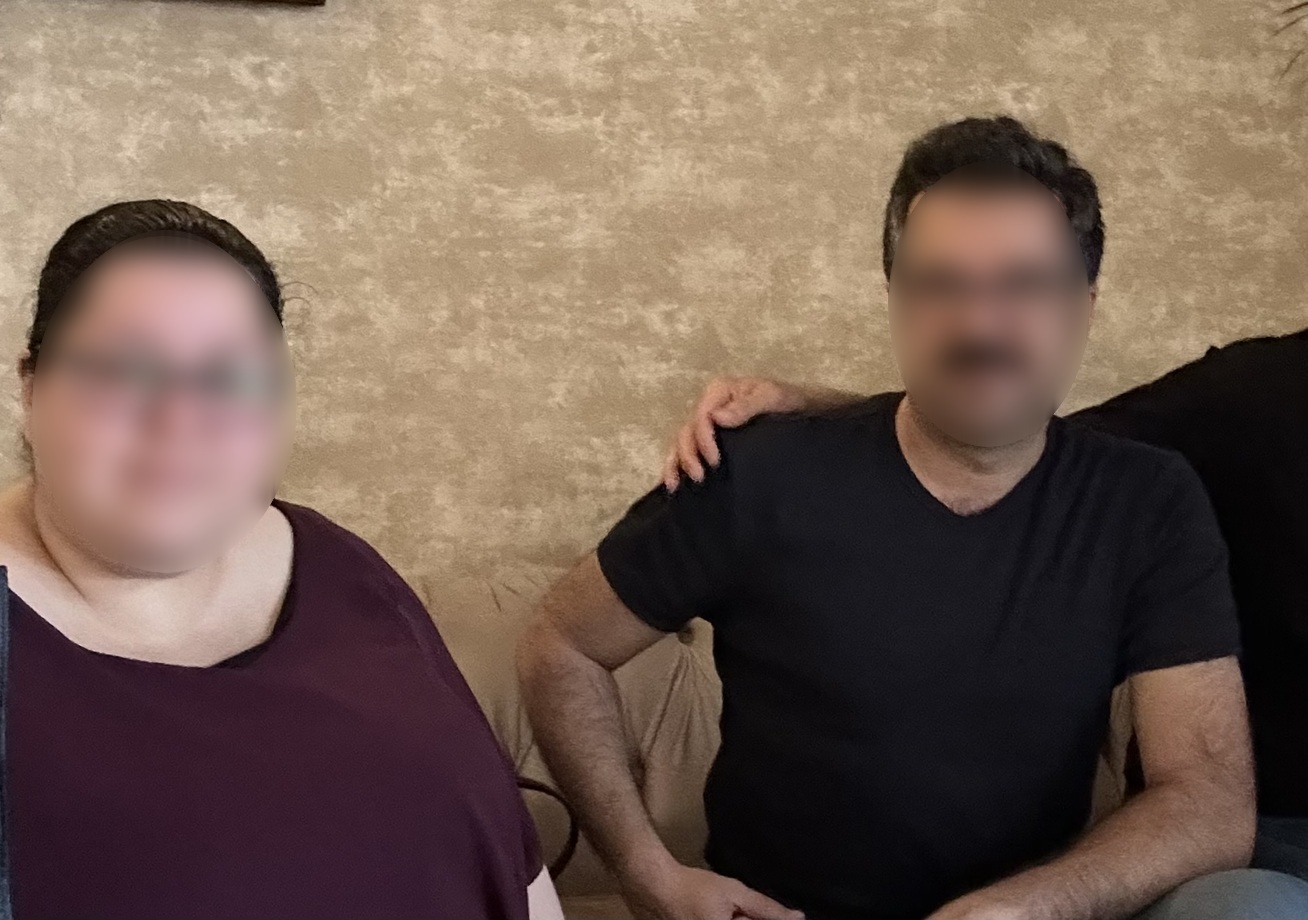During my visit to Turkey, I had the opportunity to meet Shirin and Farhad.*
It was an early morning, around 6:00 AM, when they arrived at the hotel to see me. My heart sank as soon as I saw Shirin, who was clearly struggling to walk due to a severe spinal issue she had been diagnosed with. Despite her physical pain, she had come with her husband, Farhad, to share their story with me.
Their message was deeply troubling. Shirin and Farhad, like many other refugees in Turkey, faced significant challenges due to legal restrictions on racial and religious discrimination. As Kurds, they often encountered barriers that made it difficult to survive in Turkey.
Their plight was worsened by their long and difficult wait for their asylum case to be heard by Turkish immigration authorities.
When the interview finally happened after six years of waiting, it was conducted under highly stressful and unfair conditions. They were caught off guard by the suddenness of the interview, which was marked by unfair treatment and discrimination from immigration officers solely based on their Kurdish ethnicity and Christian beliefs.
The situation for refugees in Turkey took a turn for the worst in 2018 when the Turkish government assumed control of all refugee affairs from the UNHCR.
This shift resulted in even more challenging conditions for refugees, particularly for ethnic minorities like Shirin and Farhad, as well as for Christian converts, who faced various pressures and inhumane treatment.
Adding to their distress, just 10 days after the interview, Shirin received a devastating diagnosis of a suprarenal gland tumor. Due to their town’s lack of adequate medical facilities, she was transferred to a hospital in another region. However, their hopes for medical treatment were dashed when their claims for protection in Turkey were rejected by immigration. This rejection led to the termination of Shirin’s health insurance, rendering her stateless and further complicating her medical situation. The hospital even suspended her treatment just days before she was scheduled to undergo surgery.
Despite these overwhelming challenges, Shirin’s life was saved thanks to financial assistance from Christian groups, enabling her to undergo the first stage of surgery. However, their legal battles proved futile as their court-appointed lawyers lacked adequate information about the dire circumstances faced by asylum seekers in Turkey. Their appeals were rejected, leaving them with no legal recourse and facing the imminent threat of deportation to Iran, where their lives would be endangered due to their beliefs and ethnic origin.
The fear of deportation loomed large for Shirin and Farhad, who dreaded the prospect of being denied medical treatment, unable to access basic services, and living in constant fear and uncertainty. Shirin’s health deteriorated significantly due to the stress and lack of adequate medical care, resulting in fractured ribs and vitamin deficiencies. She urgently needed to see a cardiologist to address the accumulation of fluid around her heart.
Their harrowing ordeal is not unique; it reflects the experiences of millions of displaced people worldwide. Refugees and migrants endure hunger, discrimination, poor living conditions, and inadequate access to healthcare, worsening their physical and mental health issues.
Turkey hosts one of the largest refugee populations globally, with 3.7 million refugees, representing over 11% of the global refugee population. The country serves as a crucial destination for individuals fleeing conflict and persecution, particularly Iranians, as this destination incurs less travel costs and has relatively accessible visa requirements.
However, the transition of refugee status determination from the UNHCR to Turkish authorities in 2018 marked a significant setback, as proper risk assessments were overlooked, leaving vulnerable individuals like Farhad at greater risk of persecution and deportation.
Despite their desire to relocate to Western countries for a better life, the resettlement process remains slow and daunting. With only around 42,000 refugees resettled from Turkey, it would take nearly 90 years to address the needs of all 3.7 million refugees through conventional resettlement channels. This prolonged wait, coupled with discrimination and oppression, leaves individuals like Shirin with little hope of a better future.
Shirin’s family sought resettlement in Australia, but their application has been stalled for years without any response from the authorities. Their pleas for assistance go unanswered, highlighting the bureaucratic hurdles and lack of compassion faced by refugees in their pursuit of safety and stability.
With only around 42,000 refugees resettled from Turkey, it would take nearly 90 years to address the needs of all 3.7 million refugees through conventional resettlement channels.
This prolonged wait, coupled with discrimination and oppression, leaves individuals like Shirin with little hope of a better future.
*Names changed for security reasons.
WAYS YOU CAN HELP:
$75 can provide a refugee family with emergency food rations, covering their basic needs.
$50 can fund a month’s worth of school fees or supply a school pack for a refugee child.
$150 can assist a refugee family with rent or cover medical expenses.
$9,000 can support a refugee family’s resettlement application or cover flights to a safer location in their home country.
Reach out to us for more information or any questions you may have. To give, click here.

